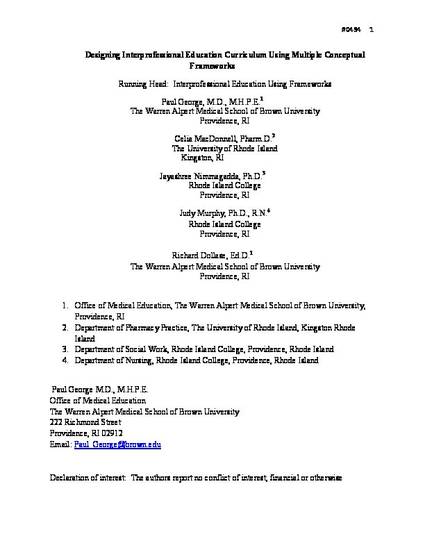
With the full implementation of the Affordable Care Act and the impending physician and nursing shortage, health professional students will increasingly find themselves working together in teams to care for patients. Education at the undergraduate level is necessary for students to perform effectively in teams as practicing clinicians. We describe our approach to designing curriculum for health professional students, namely using educational conceptual frameworks such as Kotter’s 8-step Change Model, Kern’s 6-step approach to designing curriculum, and Miller’s pyramid. This approach is adaptable and transferable to other health professional schools to aid in interprofessional curriculum development.
George, P., MacDonnell, C., Nimmagadda, J., Murphy, J., & Dollase, R. (2015). Designing Interprofessional Education Curriculum Using Multiple Conceptual Frameworks. Annals of Behavioral Science and Medical Education, 21(1), 9-13. doi: 10.1007/BF03355303
Available at: http://dx.doi.org/10.1007/BF03355303